5 Best REALLY FREE VPNs in: I’m not a fan of free VPNs, as they often come with significant drawbacks. At worst, free VPNs can be risky, containing malware or selling your personal information. At best, they tend to be too restrictive, with low data caps, limited features, or slow speeds.
However, if you’re set on using a free VPN, I’ve found some of the best options. After testing both well-known and lesser-known VPNs, the ones I recommend are secure, don’t track or store your browsing data, and offer solid speeds for all types of online activities. They also include some extra features and are easy to use.
That said, I still highly recommend opting for a premium VPN. The best paid options, like my top pick ExpressVPN, offer numerous benefits, including advanced security, unlimited data, multiple device connections, streaming support, and more—all for just a few dollars a month. Editors’ Note: ExpressVPN and this site are owned by the same parent company.
Best VPN For Streaming
1. ExpressVPN — Best VPN With the Fastest Speeds for Smooth Streaming
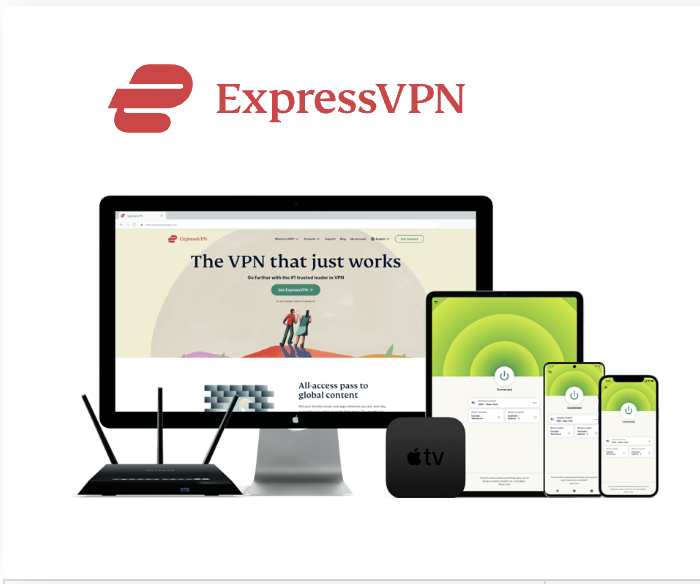
| Best Feature | The fastest speeds we tested, ensuring you can stream, browse, game, and torrent without interruptions |
| Server Network | 3,000 servers in 105 countries give you fast worldwide connections |
| Simultaneous Device Connections | Up to 8, so you can protect your compatible devices under one subscription |
| Works With | Netflix, Disney+, Amazon Prime Video, BBC iPlayer, (HBO) Max, Hulu, Vudu, DAZN, and more |
2. NordVPN — Best VPN With the Fastest Speeds for Smooth Streaming


| Best Feature | High security features and fast speeds for a reliable connection |
| Server Network | 5,400 servers in 60 countries for improved accessibility and connection speeds |
| Simultaneous Device Connections | Up to 6 devices, suitable for protecting multiple devices simultaneously |
| Works With | Netflix, Disney+, Amazon Prime Video, BBC iPlayer, (HBO) Max, Hulu, Vudu, DAZN, and more |
1. ExpressVPN – Best Overall VPN in 2025
ExpressVPN is a top-tier VPN service, offering premium features and an exceptional overall experience. While it’s not free, it comes with a 30-day money-back guarantee, so you can try it risk-free and receive a full refund if you’re not satisfied.
Here’s why ExpressVPN is the best in the industry:
- Top-tier security features
- Perfect for streaming, torrenting, and gaming
- Blazing fast speeds
- User-friendly apps for nearly all devices
In terms of security and privacy, ExpressVPN stands out with an audited no-logs policy (unlike some free VPNs), a powerful ad, tracker, and malware blocker (a feature that most free VPNs either lack or limit), and even a secure password manager that’s included for free with your subscription. Among the free VPNs on my list, only ProtonVPN offers a password manager.
If you’re into streaming, ExpressVPN shines with its support for all major streaming platforms, including Netflix, Amazon Prime, Disney+, and Apple TV+, along with 100+ other services. The only free VPNs that support streaming are Windscribe and TunnelBear, but both have monthly data caps, limiting your ability to stream as much as you want.
When it comes to speed, ExpressVPN excels. Thanks to its proprietary Lightway protocol, it offers lightning-fast connections: websites load instantly, videos start without buffering, large files (like a 20 GB download) finish in about 13 minutes, and there’s no lag during gaming. While some free VPNs have decent speeds on nearby servers, they tend to offer limited server choices, which can lead to slower speeds unless a server is nearby.
ExpressVPN is also great for torrenting, supporting P2P sharing on all servers (unlike top free VPNs like ProtonVPN, which don’t support torrenting). Additionally, it includes a router app, so all devices connected to your router are protected. Unlike free VPNs such as ProtonVPN, Hotspot Shield, and hide.me, which only allow a single connection on their free plans, ExpressVPN allows up to 8 simultaneous connections.
Customer support is another highlight. ExpressVPN provides 24/7 live chat support for both paid and free users—unlike many free VPNs that restrict live chat to premium users. There’s also a wealth of troubleshooting guides, FAQs, and setup tutorials with clear screenshots to help you out.
2. Proton VPN – Excellent Free Plan with Unlimited Data and Fast Speeds
Proton VPN’s free plan offers unlimited data and solid speeds, making it a standout option for those looking for a no-cost VPN. Plus, it’s completely ad-free, which is rare among free VPNs. Many free VPNs impose data limits or slow down your bandwidth, like Windscribe and TunnelBear, which cap your data, or Hotspot Shield, which forces you to watch ads every 15 minutes.
In terms of speed, Proton VPN performed well in my tests. Websites loaded almost instantly, HD videos took just 1-2 seconds to start, and 4K videos began within 3-4 seconds with only minimal buffering at the start. Proton VPN also offers a feature called VPN Accelerator, but this is only available with the paid version.
What I appreciate about Proton VPN is that its apps are open-source, allowing anyone to review the source code for security and privacy issues. Additionally, its no-logs policy has been independently audited for transparency.
The free plan gives you access to servers in 5 countries: the US, Netherlands, Japan, Romania, and Poland. However, you don’t get to choose your server location; instead, Proton VPN automatically connects you to the fastest available server. If that server is far away, it could impact your speeds, but that’s a minor inconvenience given the overall performance. Proton VPN’s apps are sleek and easy to use.
However, the free plan does have some limitations. It doesn’t support torrenting and restricts you to just 1 device (though you can work around this by installing the VPN on your router).
While Proton VPN’s free plan doesn’t officially support streaming, I was able to access some content on services like Netflix and Amazon Prime, though it was inconsistent—working about half the time. The free plan also lacks features like its ad blocker (NetShield), split-tunneling, port forwarding, Secure Core servers (which route traffic through two servers for added security), and access to live chat support.
Upgrading to the paid version (Plus) offers additional benefits, such as access to servers in 117 countries, support for 90+ streaming services, live chat support, P2P servers in 117 countries, and 10 simultaneous connections. That said, ExpressVPN still offers better overall value with more streaming support and superior P2P capabilities.
3. hide.me – Excellent Free VPN with Multiple Server Locations
hide.me’s free plan offers unlimited bandwidth and access to servers in 8 countries, including the US, UK, Netherlands, France, and Germany. This wide range of free server locations helps you connect to a nearby server for faster speeds. Another great feature is that you don’t need to create an account to use the free plan, which is fantastic for privacy-conscious users.
During my speed tests, websites loaded almost instantly, and YouTube videos in HD took only around 2 seconds to load without buffering when skipping. While hide.me mentions some speed restrictions on the free plan, I found the speeds to be only slightly slower than Proton VPN’s. Additionally, the free plan includes split-tunneling, which can further optimize your speeds.
hide.me’s apps are easy to use, featuring a simple interface with clear explanations of settings—perfect for beginners. It also shows the ping for each free server location to help you choose the best server for speed. However, the app design is a bit dated compared to Proton VPN’s more modern look. The free plan doesn’t support router installations, so you can’t increase the number of connections unless you upgrade.
A standout feature of hide.me is that free users can access 24/7 live chat support, a rare offering among free VPNs. The support team responds quickly and provides helpful answers, which is a huge bonus.
For those who upgrade to the paid version, hide.me offers additional perks, including support for 10 devices, access to all servers, streaming capabilities (working with platforms like Netflix and Amazon Prime), and excellent P2P support. The paid version also includes port forwarding, which can improve torrenting speeds by connecting you to more peers.
4. Hotspot Shield – Ideal for Secure Web Browsing
Hotspot Shield’s free plan comes with unlimited data, making it a solid option for secure web browsing. It doesn’t require you to create an account, which is convenient for users who prefer anonymity. The free version offers decent speeds with its proprietary Hydra protocol, though it limits you to 2 Mbps. Websites took 2-3 seconds to load, and standard-definition videos streamed smoothly without buffering.
However, the free plan does have its drawbacks: it displays ads every 15 minutes, which can be annoying. Additionally, it logs your IP address on mobile apps for ad targeting. If you’re fine with ads, you can use the desktop app without issues, but if ads are a deal-breaker, you may want to consider alternatives like Proton VPN or hide.me, which don’t have such limitations.
Hotspot Shield’s free plan is limited to servers in only 3 countries: the US, UK, and Singapore. While this is a small selection, it still allows for reasonable speeds, especially for users in North America, Europe, and Asia. The free plan is restricted to one connection and doesn’t support routers.
Hotspot Shield does offer a 7-day free trial for its paid version, which removes the IP logging and ads on mobile, supports 10 connections, and provides access to servers in 85 countries, plus streaming support.
5. Windscribe – Solid Free VPN for Streaming
Windscribe’s free plan stands out by supporting streaming services like Netflix, Max, Amazon Prime, and BBC iPlayer. It also allows torrenting and gives you the flexibility of unlimited connections across multiple devices, which is rare for a free VPN—making it ideal for families needing a free VPN.
The downside is that Windscribe’s free plan comes with a data cap: you start with 2 GB per month, which increases to 10 GB if you provide your email address. While 10 GB is decent (I tested it and got around 50 hours of browsing or 8.5 hours of streaming), I prefer Proton VPN’s free plan, which offers unlimited data.
Windscribe provides fast speeds on the free plan and offers servers in 10+ countries. It also supports split-tunneling, letting you choose which apps or websites use the VPN, and includes R.O.B.E.R.T, an advanced ad blocker that can also block malicious sites, adult content, and social media platforms.
For those who upgrade to the paid version, Windscribe offers servers in 69 countries, unlimited bandwidth, and advanced features like port forwarding, router support, and Secure Hotspot.
Bonus: TunnelBear – Excellent Free VPN with Access to All Servers & Features
TunnelBear’s free plan provides access to all of its 47 servers, allowing you to easily choose a nearby server for optimal speeds. In my tests, TunnelBear delivered solid performance—websites and HD videos loaded within 3-4 seconds, and there was no buffering when skipping through the videos.
One of the standout features of TunnelBear is that free users get full access to its premium features, including GhostBear, which helps bypass VPN blocks in countries with internet restrictions, and SplitBear, which allows you to use split tunneling for both apps and websites. Additionally, TunnelBear allows free subscribers to install the VPN on unlimited devices. However, torrenting is not supported on the free plan.
The main limitation of TunnelBear’s free plan is its 2 GB monthly data cap. While this is enough for light browsing and occasional streaming, it’s not ideal for daily use. If you need unlimited data, Proton VPN or hide.me would be better alternatives.
TunnelBear’s app interface is highly intuitive, with all features clearly presented and easy to navigate. The playful bear-themed design adds a fun touch, and the interactive map allows you to easily select the country you want to connect to by clicking on a country pin. This makes it very user-friendly, even for beginners.
Testing Methodology: Comparison & Ranking Criteria
I followed a thorough testing process to ensure that I only recommend free VPNs that meet my high standards. Each VPN was evaluated through a variety of real-world scenarios to assess factors like ease of use, security, privacy, speeds, and more. All the VPNs on this list exceeded my expectations, offering more value compared to other options. Below are the key criteria I used to rank and evaluate each VPN.
- Free VPN Features: I assessed the offerings of each free VPN plan, as many free VPNs have significant limitations. I looked for free plans with generous data allowances, minimal ads, access to a good range of server locations, and support for P2P or streaming.
- Security: Security is a top priority. All the VPNs on my list come with essential security features like 256-bit AES encryption (one of the strongest encryption standards used by banks), a kill switch that disconnects you if the VPN connection drops, and IP leak protection. Many of my top picks also feature advanced tools like RAM-only servers that erase all data upon reset and perfect forward secrecy, which ensures a new encryption key for each VPN session. I thoroughly tested to ensure no data leaks and that the kill switch functions as expected.
- Privacy: I focused on VPNs with strong privacy policies. Every VPN on this list adheres to a strict no-logs policy, meaning they do not track or store any information about your online activity, such as torrenting. Most are based in privacy-friendly countries that have no data-retention laws, meaning they aren’t legally obligated to collect any personal information.
- Speeds: I tested the speeds of each VPN’s free plan. All VPNs reduce your internet speed due to encryption, but free VPNs tend to be even slower since they typically offer fewer server locations, leading to overcrowding. I tested all available server locations for each VPN to ensure good performance, with ExpressVPN standing out as the fastest.
- User-Friendliness: Many free VPNs come with apps that can be buggy or hard to use, so I evaluated the desktop and mobile apps for ease of installation and usability. I made sure that all the apps on this list were simple to install and navigate, offering a smooth experience.
- Value and Affordability: I also considered the pricing and value of the VPNs. If you decide to upgrade to a premium plan, I ensured that the VPNs offered affordable pricing, a large server network, excellent streaming and P2P support, and multiple connection options. I also checked for money-back guarantees for peace of mind with any paid plans.
Risks of Using a Free VPN
- Weak Security: Many free VPNs lack essential security features, which defeats the purpose of using one. For instance, without strong encryption, a third party could track your online activity, and without a kill switch, your data could be exposed if the VPN connection drops unexpectedly. To ensure complete protection, it’s best to opt for a reliable, trusted VPN like the ones listed here.
- Blacklisted Servers: Free VPN plans often offer servers with IP addresses that don’t refresh regularly. As a result, these IP addresses can become blacklisted, preventing access to certain websites.
- Data Selling: Some free VPNs may log your online activities and sell that data to third parties, who then use it to target you with unwanted ads. To safeguard your privacy, choose a VPN with a strict no-logs policy (such as ExpressVPN, which has been independently audited to verify its no-logs commitment).
- Intrusive Ads: Many free VPNs show ads or sponsored content within their apps or while you browse, which can be disruptive and frustrating. These ads might also use up bandwidth, causing slower connection speeds.
- Malware Risks: Some free VPNs may contain malware, adware, or other security threats that could compromise your device and personal data. However, all the VPNs on my list are trusted and free from such risks.
- Compatibility Issues: Certain free VPNs may not offer apps for all platforms (like mobile devices), and some apps can be challenging to use. Fortunately, all of the free VPNs I recommend come with user-friendly apps for major platforms, including iOS, Android, Windows, and macOS.
- Limited Customer Support: Free VPN providers often can’t match the level of support that paid VPNs offer. This could result in slower response times, limited support hours, and fewer resources if you encounter issues with your VPN service.
Free vs. Paid VPNs
The free VPNs listed here provide strong security protections, including 256-bit AES encryption, a kill switch, and a no-logs policy, ensuring your data remains private. Some even offer advanced security features like full leak protection, RAM-only servers, perfect forward secrecy, and full-disk encryption for added security.
However, free VPNs generally fall short of the features offered by premium VPNs. They often have limited server networks, data usage restrictions, and fewer simultaneous connections. Additionally, free VPNs can slow down your speeds, and they usually lack support for streaming or torrenting.
For example, hide.me’s free plan offers unlimited data, good speeds, and torrenting support, but it’s limited to a handful of countries and allows only one connection. Meanwhile, Proton VPN’s free plan provides unlimited data, solid security, and good speeds, but it doesn’t support streaming or P2P activities and restricts you to just 5 servers and 1 connection.
On the other hand, upgrading to a paid VPN offers a much better experience: unlimited data, a large server network, faster speeds, multiple connections, and additional features like split-tunneling and ad blockers. Paid plans also fully support streaming and torrenting. Many top VPNs offer competitive pricing and a 30-day money-back guarantee, so you can test them out risk-free.
Best VPN For Firestick Free Trial
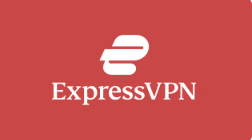

Best overall VPN with a free trial
ExpressVPN
Privacy protection and transparency
Show our expert takeHow Free VPNs Make Money
- Advertisements: One of the most common ways free VPNs generate revenue is by displaying ads to their users. You might encounter banner ads, pop-ups, or sponsored content within free VPN apps. VPN providers earn money based on ad performance metrics such as impressions and clicks.
- Premium Plans: Many VPN providers offer free versions of their apps with limited features, server options, and bandwidth, mainly to give users a chance to test out the service before committing to a paid plan. These providers rely on revenue from their paid users to support the free version of their service.
- Selling User Data: Some free VPNs collect and sell user data, such as browsing history or demographic details, to third-party advertisers and data brokers. This is why it’s important to choose a trustworthy VPN with a no-logs policy, like ExpressVPN, which guarantees it doesn’t collect or sell your data.
Who Are Free VPNs Best For?
Free VPNs provide basic privacy and security without any cost, making them ideal for certain types of users:
- Budget-conscious users: If you’re looking to enhance your online privacy without spending money, a reliable free VPN can help. It will mask your IP address and encrypt your web traffic to ensure your data remains secure.
- Occasional VPN users: For users who only need a VPN for occasional activities (like connecting to public Wi-Fi in cafes or airports), a good free VPN is sufficient to protect your data on these rare occasions.
- New VPN users: If you’re new to VPNs, a free version allows you to test the service before deciding to upgrade. However, keep in mind that free VPNs often come with limitations like slower speeds, fewer server options, and restrictions on streaming or torrenting.
While free VPNs can be useful, they often come with restrictions, and some might even compromise your security or privacy. It’s essential to do thorough research and select reputable providers.
How to Get a Premium VPN for Free
You can test top premium VPNs for free by using their money-back guarantees. For instance, ExpressVPN offers a 30-day money-back guarantee, so you can get a full refund if you’re not satisfied with the service.
Additionally, some premium VPNs offer free trials that let you experience their services, but these trials usually have limitations, such as restricted features or shorter timeframes.
Certain VPNs offer completely free plans but with limitations. For example, Proton VPN offers unlimited bandwidth on its free plan but restricts you to 5 server locations. TunnelBear provides access to all servers but caps bandwidth at 2 GB per month.
How to Maximize Your Free VPN Experience
To get the most out of your free VPN, consider these tips:
- Lower video quality: Watching videos in lower quality (like 480p or 360p) instead of HD will reduce data usage.
- Use an ad blocker: Blocking ads and trackers can save bandwidth. Windscribe is one of the few free VPNs that includes an ad blocker, but you can also use the free uBlock Origin extension with any VPN.
- Turn off auto-play: Disable auto-play on social media and video sites to prevent unnecessary data consumption.
- Use split-tunneling: Some VPNs, like hide.me, offer split-tunneling, which lets you route only specific activities (like sensitive browsing) through the VPN while allowing other activities (like secure browsing) to use your regular connection, saving data.
- Use data compression: Tools like the Opera browser’s compression mode reduce the amount of bandwidth you use.
- Connect during off-peak hours: Choose less crowded servers during off-peak times to improve speed.
- Combine multiple free VPN plans: If you use multiple free VPNs, you can get access to more server locations and additional data.
- Choose the closest server: For faster speeds, connect to the server nearest to your location.
Alternatives to Free VPNs
- Proxy Servers: Free proxy servers, like free VPNs, are easy to set up and offer basic IP address changes, but they come with several drawbacks. Proxies don’t encrypt your data, so they’re not as secure as VPNs, and they can be slow and unreliable. They’re suitable for changing your IP address but not for serious privacy or security.
- Tor Browser: Tor routes your data through multiple servers, providing high levels of encryption. However, it can be very slow and risky if you accidentally click on malicious links, especially in the dark web. If you decide to use Tor, be cautious about your security.
- Free VPN Extensions: Free VPN browser extensions can unblock websites and offer some level of security, but they typically only protect your browser traffic. Apps outside the browser (like those for your email or other programs) won’t be protected. Additionally, like full free VPN apps, free extensions may also have security concerns, so it’s often safer to opt for a premium VPN extension.
Free VPNs to Avoid
- Hola VPN: Hola is a peer-to-peer (P2P) VPN that assigns you another user’s IP address while giving them yours. This can be very risky, as malicious actors can use your IP for illegal activities. It also doesn’t encrypt your traffic, keeps user logs, and has a history of leaking IP addresses.
- SuperVPN: SuperVPN is a dangerous VPN that collects a lot of personal data, such as your IP address, operating system, and browser type. It lacks essential security features, and there’s no customer support available. Moreover, SuperVPN suffered a data breach that exposed over 133 GB of user data, including IP addresses, email addresses, and geo-locations.
- Phone Guardian: While not inherently shady, Phone Guardian doesn’t function like a traditional VPN. It only encrypts your data, but it doesn’t hide your IP address or location, and it lacks crucial security features such as a kill switch. It doesn’t offer the comprehensive protection you would expect from a regular VPN.
- AceVPN: AceVPN offers some basic features like DNS leak protection, but it falls short in several key areas. It doesn’t include a kill switch, has only 20 server locations, and offers just one P2P server. The biggest issue is that it lacks dedicated apps, requiring you to manually configure it on your device, which is inconvenient.
- TouchVPN: TouchVPN boasts over 5,500 servers across 80+ countries, which sounds impressive. However, it collects your IP address and tracks the websites you visit, making it far from a privacy-friendly option.
- Hoxx VPN: Hoxx VPN collects detailed information about your online activities, device, and location. In its terms of use, it mentions that it “may” retain this data even after you delete your account, which raises significant privacy concerns.
- Turbo VPN: Turbo VPN claims to follow a no-logs policy, but it doesn’t clarify whether it collects your IP address. This lack of transparency is troubling, especially considering the risks involved in using a VPN that doesn’t disclose its data practices clearly.
- TuxlerVPN: TuxlerVPN’s privacy policy reveals that it logs your browsing activities, device information, and contact details. It may even share this data with third parties for business purposes, making it an unreliable option for privacy-conscious users.
- FinchVPN: FinchVPN’s website is suspiciously unprofessional and buggy. It provides little to no information about its features, and when attempting to access the Privacy Policy, it redirects to the homepage, raising concerns about transparency.
The Amazon FireStick is an incredibly powerful streaming device that has revolutionized the way we watch TV. Even if you don’t own a Smart TV, simply plug the FireStick into any HDMI port, and it instantly transforms your regular TV into a smart one with access to a wide range of streaming services. To take your FireStick experience to the next level, using a VPN is highly recommended. A FireStick VPN helps you bypass geo-restrictions and ISP throttling, ensuring uninterrupted and buffer-free streaming. Using a VPN with FireStick brings significant benefits, and one of the top options is ExpressVPN. This VPN offers excellent performance, strong encryption, and access to global content libraries. No matter where you are, ExpressVPN ensures a seamless, high-speed streaming experience with top-notch privacy protection. Plus, they offer a 30-day money-back guarantee, so you can try it risk-free. If for any reason you're not satisfied (though it’s highly unlikely), you can get a full refund. With ExpressVPN on FireStick, you can enjoy your favorite shows and movies without any interruptions or concerns. Experts Recommended:
Other Suspicious VPN Apps
I’ve also found several shady VPN apps in app stores that lack official websites or clear details about their services:
- VPN – Super Unlimited Proxy
- 1clickVPN
- EasyVPN
- VPN Proxy Master
- VPN – fast proxy
- CrossVPN
- AnonyTun
- OK VPN
- VPN Hat (or Hat VPN)
- VPNGO (or GO VPN)
Avoid these VPNs as they may compromise your privacy or security. Always do thorough research before choosing a VPN to ensure it’s trustworthy and secure.
Frequently Asked Questions
What’s the best free VPN?
Proton VPN is my top choice for the best 100% free VPN in 2025. It offers unlimited bandwidth, fast speeds, servers in 5 countries, and robust security and privacy features.
While all the free VPNs listed here are solid options, ExpressVPN stands out as the best overall VPN available. Although it’s not free, ExpressVPN offers a 30-day money-back guarantee, making it risk-free to try. It boasts the fastest speeds for browsing, streaming, torrenting, and gaming, plus highly secure and user-friendly apps across all major platforms.
Are free VPNs safe?
Not all free VPNs are safe. Many lack essential security features, some collect and sell your data, and others may even come with malware. However, the free VPNs listed here—hide.me, Proton VPN, and Windscribe—offer strong security and privacy protections, making them much safer options compared to others.
Are free VPNs legal?
Yes, in most countries, free VPNs (and premium VPNs) are legal. However, a few countries, including China, Iran, Indonesia, and North Korea, have banned VPNs. In these regions, using a VPN could result in fines or even imprisonment.
Do free VPNs work with Netflix and other streaming platforms?
Some free VPNs do work with streaming services, but most don’t perform well with Netflix. Many free VPNs fail to bypass Netflix’s geo-blocks, and others work intermittently.
Windscribe, however, works well with Netflix and other popular platforms like Amazon Prime, Max, and Disney+. Keep in mind, though, Windscribe’s free plan limits you to 10 GB of data per month, so it’s not ideal for binge-watching.
For the best streaming experience, a paid VPN like ExpressVPN is your best option. It works with 100+ streaming services, including Netflix, and provides unlimited data.
Is there a 100% free VPN?
Yes, Proton VPN offers a truly free plan that includes unlimited data, fast speeds, and solid security. Similarly, hide.me’s free plan supports torrenting, offers strong privacy features, and lets you access servers in 5+ countries.
However, free VPNs usually come with limitations—Proton VPN’s free plan doesn’t support streaming or P2P traffic and restricts you to servers in just 5 countries. Hide.me’s free version also limits speed and lacks streaming support.
If you want the best overall experience, a premium VPN like ExpressVPN offers unlimited data, the fastest speeds, access to 100+ streaming services, servers in 105 countries, and P2P support across all locations.
Which devices can I install a free VPN on?
Most free VPNs are compatible with popular devices, including Android, iOS, Windows, and macOS. Some also have support for Linux and smart TVs.
What is the best free VPN for torrenting?
For torrenting, hide.me is my top pick for a free VPN. It allows torrenting, maintains good speeds, and supports all popular torrenting apps like BitTorrent, uTorrent, and Vuze. Plus, it offers unlimited data.
That said, hide.me’s free plan restricts speed, making downloads slower. Upgrading to its paid plan provides unlimited data, access to 2,300+ servers in 50+ countries, and up to 10 simultaneous connections.
For the best overall torrenting experience, ExpressVPN is the top choice. It has the fastest speeds, high-level security, servers in 105 countries that support P2P traffic, and features like port forwarding for quicker downloads.
What’s the fastest free VPN?
Proton VPN is the fastest free VPN on this list. In my tests, web pages loaded in 2-3 seconds, HD videos took up to 3 seconds to load, and a 2.2 GB file downloaded in about 7 minutes. However, ProtonVPN’s free plan has limits—it only allows one device connection, doesn’t support streaming, and restricts you to servers in 5 countries.
For the best speed, consider a premium VPN like ExpressVPN, which is the fastest on the market, offering unlimited data, 8 simultaneous connections, support for 100+ streaming apps, and servers in 105 countries.
What’s the best free VPN for gaming?
Proton VPN is also a solid free choice for gaming, offering unlimited data, fast speeds, and strong security. However, its free plan limits you to one device connection and only has 5+ server locations.
For a premium gaming experience, I recommend ExpressVPN. It offers the fastest speeds, low ping, and zero lag for online gaming. It also has anti-DDoS protection and is one of the few VPNs that support cloud gaming. Plus, with a router app and smart DNS, you can use it on devices like PlayStation and Xbox.
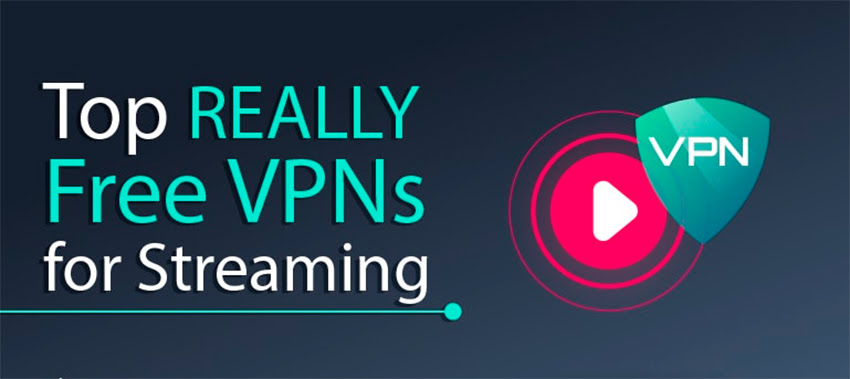






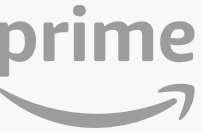

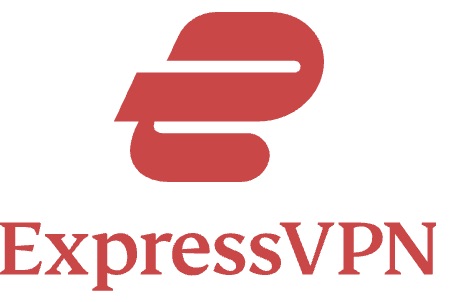
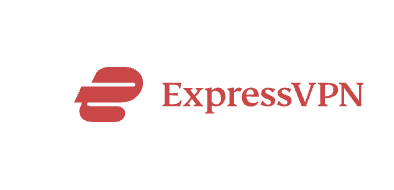
Related Articles